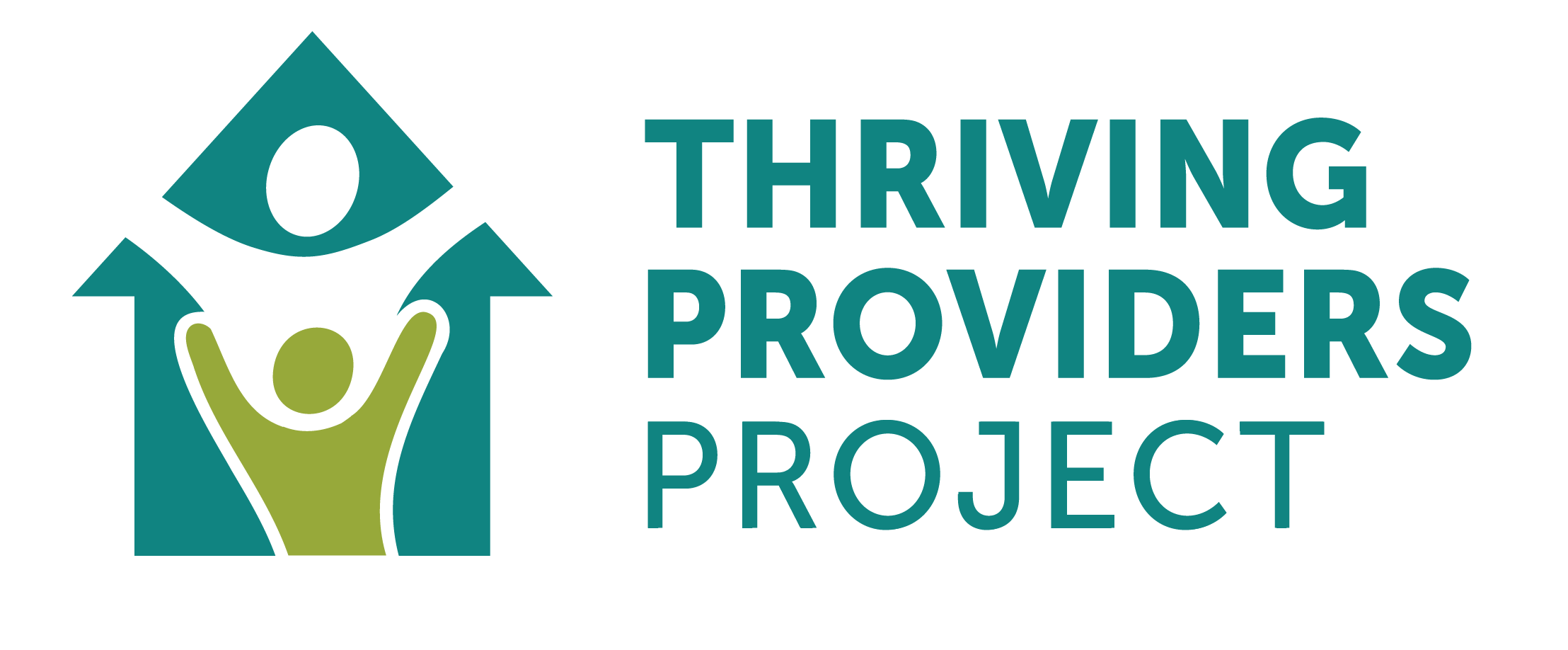Thriving Providers Project: Strengthening Child Care Amid Federal Policy Threats

The Thriving Providers Project (TPP) pilot program was designed to demonstrate how direct cash transfers can impact the economic stability and emotional well-being of home-based child care (HBCC) providers — ultimately strengthening their ability to deliver quality care. To date, TPP data has empowered pilot sites to collaborate with local policymakers on significant reforms aimed […]
What we’ve learned about direct cash transfers in New York and Philadelphia after six months

In this update, we share what we’ve learned so far about providers’ experiences with the Thriving Providers Project (TPP) in New York and Philadelphia. We share early findings from the first six months of data collected from these sites between May and December 2024. These data are from a range of voices: the majority of […]
TPP Data Update: Philadelphia and New York City

For the data corner in this quarter’s newsletter, we share early findings from the first few months of data collected from the Thriving Providers Project (TPP) replication sites in New York City and Philadelphia, which were added in 2024. First, to provide some context, the 36 TPP participants in our evaluation sample in Philadelphia identify […]
Direct Cash Payments to Child Care Providers Help Them Keep Their Doors Open, So Philadelphia Kids Get Care, and Families Can Go to Work

Author: Anne Vilen Child care businesses, especially the licensed family child care homes that hundreds of Philadelphia families depend on for regular child care so that they can go to work, operate on the thinnest of financial margins. From month to month, after the expenses of mortgage or rent, insurance, utilities, quality learning materials, cleaning […]
Request For Proposals: Implementation Partner for the Thriving Providers Project in Los Angeles County, CA

Home Grown, in partnership with the Los Angeles County Children and Families First – Proposition 10 Commission (aka First 5 LA), is soliciting proposals from organizations to implement the Thriving Providers Project (TPP) in Los Angeles (LA) County, California. Learn more.
TPP One Year Later – A Look at the Data

By: Dr. Callie Silver, Stanford Center on Early Childhood November 2023 marked the one-year anniversary for both implementation cohorts of the Thriving Providers Project (TPP) in Colorado. The first pilot of this national initiative began in Colorado with 100 home-based child care providers throughout the state receiving $500 monthly for 18 months, in addition to psychological […]
New Federal Rule Overhauls the Outdated Provider Payment and Family Access Policies in the Child Care Development Fund

The Thriving Providers Project (TPP) is focused on improving both the sufficiency and stability of income for home-based child care providers. We know that when providers’ economic stability is secured, they can engage in caregiving work that promotes quality, ensures family access and connects them to the profession for the long term. We are thrilled […]
Understanding and Expanding Benefits as a Strategy to Improve Home-based Child Care Workforce Compensation

The expiration of child care stabilization funds at the end of September has dominated news cycles for weeks and recently the Biden administration has requested $16 billion in additional funding for child care from Congress. The issue at the forefront of Home Grown’s concern is: How do we maintain access to child care for families […]
A Look at the Data – October 2023 (English and Spanish)

For the data corner in this quarter’s newsletter, we wanted to focus on survey data* from TPP participants that gives insight into the ways that TPP has been beneficial, and may continue to be, beyond the direct cash transfers. At the outset of the project, we theorized that direct cash transfers to home-based child care […]
Thriving Providers Project: What We Have Learned So Far

Innovative programs require innovative evaluation approaches. Stanford Center on Early Childhood’s (SCEC) belief in that is why we are so excited to work with Home Grown on the Thriving Providers Project (TPP). Given that this is the first direct cash transfer program in the United States focused exclusively on home-based child care providers, the primary […]
